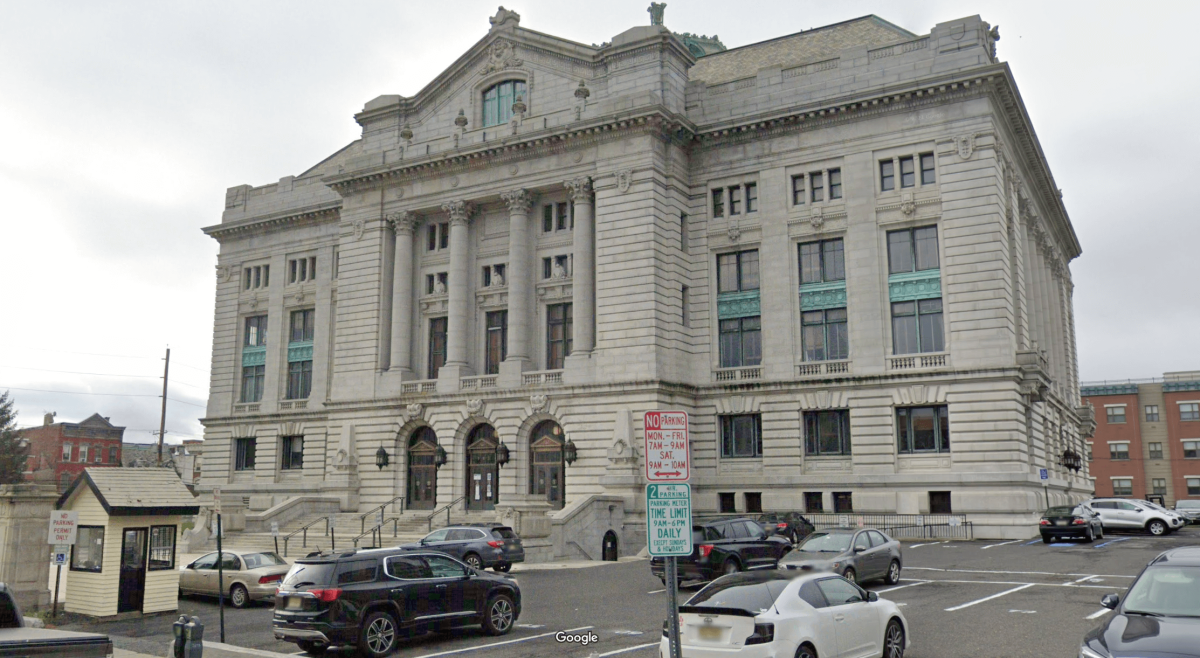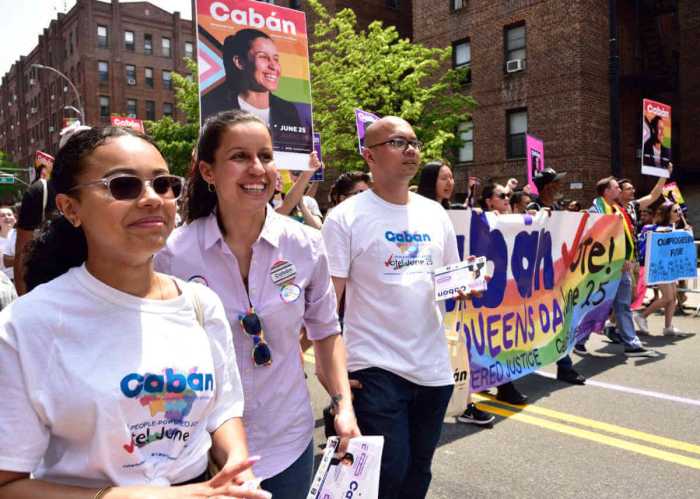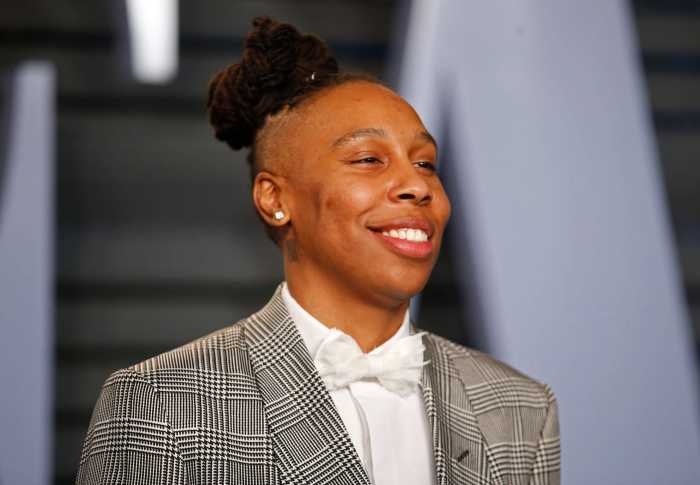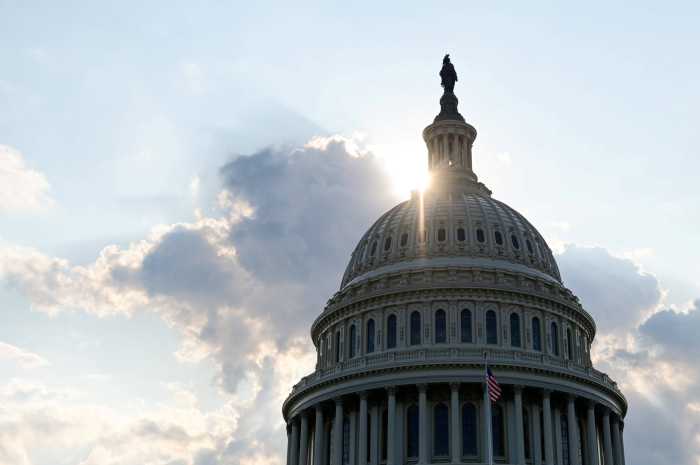A three-judge panel of New Jersey’s Appellate Division court ruled on July 6 that Arthur Goldberg and Elaine Berk, co-directors of a not-so-defunct conversion therapy outfit called JONAH, must pay $3.5 million to lawyers for a group of former JONAH “patients” for violating both the state’s consumer fraud law and a court injunction requiring them to terminate the organization and desist from conversion therapy activities.
The plaintiffs, identified by their initials in the court’s opinion, are former patients or parents of former patients who claimed that they were defrauded by JONAH’s promises to “reduce or eliminate” the patients’ “same-sex attractions.” JONAH, which stands for Jews Offering New Alternatives for Healing, targeted the Jewish community with its propaganda and arranged for conversion therapy either directly or through referrals to various practitioners.
The lawsuit filed in 2012 generated several litigated pre-trial motions and then a lengthy jury trial in which the plaintiffs testified about their experiences with conversion therapy, which had not altered their sexual orientation. The jury ruled that JONAH had engaged in “unconscionable business practices” in violation of the state’s Consumer Fraud Act.
Then the parties negotiated a settlement. JONAH’s principals, Goldberg and Berk, agreed that they would dissolve the organization and refrain from any conversion therapy activities. Plaintiffs had run up a bill of about $3.5 million from their lawyers, who agreed to accept $400,000 in settlement of the case provided the defendants complied with the court’s injunction, which incorporated the settlement terms, and not appeal the jury’s verdict. The Settlement Agreement specifically provided that if Goldberg or Berk violated its terms, they would be on the hook for the full $3.5 million, and Berk for an additional $400,000.
Goldberg and Berk, who were either genuinely committed to conversion therapy or, more likely, dedicated to the money that could be made by preying on gullible people desperate to change their sexual orientation, took evasive action to continue their operation, renaming it Jewish Institute for Global Awareness (JIFGA), continuing to match customers with conversion therapy practitioners, for which they were compensated with referral fees, setting up a crowdfunding operation for a project to make a series of conversion therapy videos (and taking a small cut of the proceeds for themselves), and operating from the same office premises in New Jersey that had been occupied by JONAH. In fact, they kept the same phone number and email address, which made it easier to continue conducting their referral practice. Such brazen non-compliance soon came to the attention of the plaintiffs.
Plaintiffs took the defendants back to court in 2018, asking Judge Bariso to enforce his injunction, including the proviso that if Goldberg and Berk violated the settlement terms, they would be liable for the full stipulated damages. Their evidence persuaded Bariso that JIFGA was an “alter ego” of JONAH, and that Goldberg and Berk had willfully violated the restrictions to which they had agreed in the settlement agreement. He rejected their argument that they were not violating the agreement because they had formally dissolved JONAH and only made referrals for out-of-state clients to therapists who practiced outside New Jersey. Judge Bariso said there was no such loophole in his order, especially as they were operating in New Jersey premises. He ordered them to pay the full amount stipulated in the agreement, and also barred Goldberg and Berk “from incorporating or serving as officers, directors or trustees of any tax-exempt entity incorporated or having any operations in New Jersey.” He later modified this to let Goldberg continue to serve as president of his synagogue and to continue his involvement with two religious charities not connected with conversion therapy.
Goldberg and Berk picked up some support for their appeal of Judge Bariso’s order from a “coalition” of “psychologists and psychotherapists” who claimed that the judge had misunderstood therapeutic practices, and from The Family Research Council and New Yorkers for Constitutional Freedoms, conservative organizations that argued that the court’s order violated the constitutional rights of Goldberg and Berk.
Judge Bariso had found that the defendants violated his injunction in three ways: (1) establishing and operating JIFGA as an alter ego of JONAH, (2) operating a crowdfunding website run by JIFGA to finance, among other things, their conversion therapy-related projects, such as the video series, and (3) continuing to make referrals for conversion therapy. And, overall, he found that their conduct perpetrated a fraud on the court and was contemptuous of its order. “The trial court’s findings are supported by the record,” wrote the Appellate Division, adding that “any one of these violations supports the relief granted by the trial court.”
Under the terms of the Settlement Agreement, the defendants could “cure” a “breach” within 30 days. When the plaintiffs filed their motion to enforce their rights under the Settlement Agreement, Judge Bariso gave the defendants an “opportunity to cure,” so they refunded some referral fees that they had received. But Judge Bariso found that the refunds “were not complete” and “did not cure all the violations.”
Defendants complained that the monetary award is “excessive since it is in the millions of dollars,” but the court pointed out that they had agreed to these amounts in the Settlement Agreement, which was directly enforceable as part of the court’s injunction issued after the 2015 trial. Defendants also complained that the restrictions on their activities — including some activities not related to conversion therapy — went beyond enforcement of Judge Bariso’s original injunction.
“We reject defendants’ and amici’s arguments that the limitations are not directly related to Goldberg and Berk’s prior breaches of the Injunction Order and Settlement Agreement,” wrote the court. “To the contrary, the trial court designed that restriction to prevent Goldberg and Berk from further violating the Injunction Order and Settlement Agreement. The ruling is consistent with the Consumer Fraud Act, which expressly allows injunctive relief. Accordingly, we discern no abuse of discretion, nor do we find that the court exceeded its authority.” The court refused to address the constitutional issues raised by Family Research Council and New Yorkers for Constitutional Freedoms, since they had not been presented to the trial court.
In addition to enforcing Judge Bariso’s order, the court pointed out that in 2020, New Jersey enacted a statutory ban on performing conversion therapy on minors. “In doing so,” commented the court, “the Legislature aptly stated our State’s well-reasoned public policy: that ‘being lesbian, gay, or bisexual is not a disease, disorder, illness, deficiency, or shortcoming.’” Although many of the defendants’ “patients” were legally adults, the same reasoning applies to them. Although the state law only forbids performance of conversion therapy on minors, the ruling in this case establishes that promoting and practicing conversion therapy on anybody of any age violates the state’s Consumer Fraud statute, because conversion therapy is a fraudulent enterprise based on lies.



































